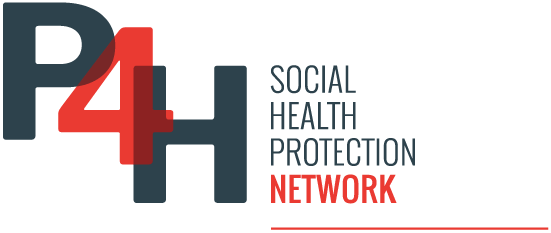The number of documents available on the P4H Network’s digital platform reflects the network’s scope of work. The majority of documents are primary source materials created by country nationals or resources produced by organizations working in social health protection (SHP) and/or health financing (HF).
TCHAD : PLAN NATIONAL DE DEVELOPPEMENT SANITAIRE (PNDS 4) 2022 – 2030
Banking on Health: The surging pandemic of health financialization
Report by the Society for International Development tells the story of how finance has gained unprecedented influence over our lives, subjugating health goals to shareholder values, market fluctuations and failures.Health financialization has surged in the last 30...
National Health Systems Strategy for Malta 2023-2030
The document outlines the strategic direction being pursued by the Maltese Government to ensure that health features as a key priority across all other national policies, sectors, and investments. It sets out the framework that anchors the vision for the development...
P4H success story in Cameroon
Cameroon takes big steps to implement UHC: Creates a dedicated budget line for UHC amounting to € 53.56 million for the year 2023Universal Health Coverage (UHC) has taken a centre stage in health systems across the globe following the commitment under United Nations’...
The importance of wage loss in the financial burden of illness: Longitudinal evidence from India
Abstract Background A key aim of Universal Health Coverage (UHC) is to protect individuals and households against the financial risk of illness, and large-scale health insurance expansions are a central focus of the UHC agenda. Importantly, however, health insurance...
Germany: health system summary 2022
Germany’s decentralized health system operates under compulsory statutory health insurance (SHI) and substitutive private health insurance (PHI), with broad, equitable benefits and low out-of-pocket costs, spending 11.7% of GDP on health—the highest among EU...
A review of local government and health facility implementation experiences in Results-Based Financing for primary health care in Uganda
Starting in the financial year 2018/19, the Ministry of Health (MOH) began implementing Results-Based Financing (RBF) under the Uganda Reproductive, Maternal, and Child Health Improvement Project (URMCHIP). To operationalize RBF, the MOH introduced performance-linked...
Supporting Health-Care Financing Reform in Mongolia: Experiences, Lessons Learned, and Future Directions
Mongolia's healthcare financing reform has introduced health insurance and shifted to an output-oriented model, aligning with a market economy. The Asian Development Bank’s support offers valuable lessons for other countries in the region. The Asian Development Bank’...
One year overview: The WHO Council on the Economics of Health for All
The WHO Council on the Economics of Health for All has issued a report on its activities at the one-year mark, half-way through its mandate.The COVID-19 pandemic highlighted and worsened global health and economic disparities. WHO estimates 14.9 million excess deaths...
Policy recommendations applied to the health care payment system to improve sustainability and access to the population in Ecuador
Strengthening health system financing in the context of COVID-19
The COVID-19 pandemic has caused a double shock – health and economic. Strengthening health financing systems has been a stressful task, not only for developing countries but also for developed countries. This study compares the impact of the COVID-19 pandemic on the...
Strategy for building resilient health systems and recovery in post-pandemic COVID-19 to sustain and protect public health gains.
Strategy for building resilient health systems and recovery in post-pandemic COVID-19 to sustain and protect public health gains.
Evaluation of RAMED implementation in Mali
In its drive towards universal health coverage, the Republic of Mali has set up a system of protection against the risk of illness, comprising three mechanisms: Compulsory Health Insurance (AMO), the Medical Assistance Scheme (RAMED) and mutual health insurance. In...
UHC for sexual and reproductive health in Morocco: evidence brief
Morocco is increasingly recognizing the importance of integrating comprehensive sexual and reproductive health services within its universal health coverage framework. Maternal health care, including antenatal, intrapartum, and postnatal services, is prioritized...
Law 27812 Determines the Sources of Financing of Comprehensive Health Insurance in Peru.
The budget of the Seguro Integral de Salud (SIS) must have internal and external sources of financing for its sustainability over time and the fulfillment of the mission for which it was created. These include ordinary resources from the General Budget of the...
